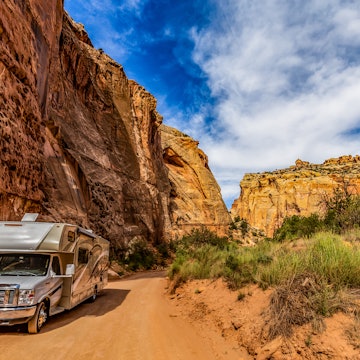
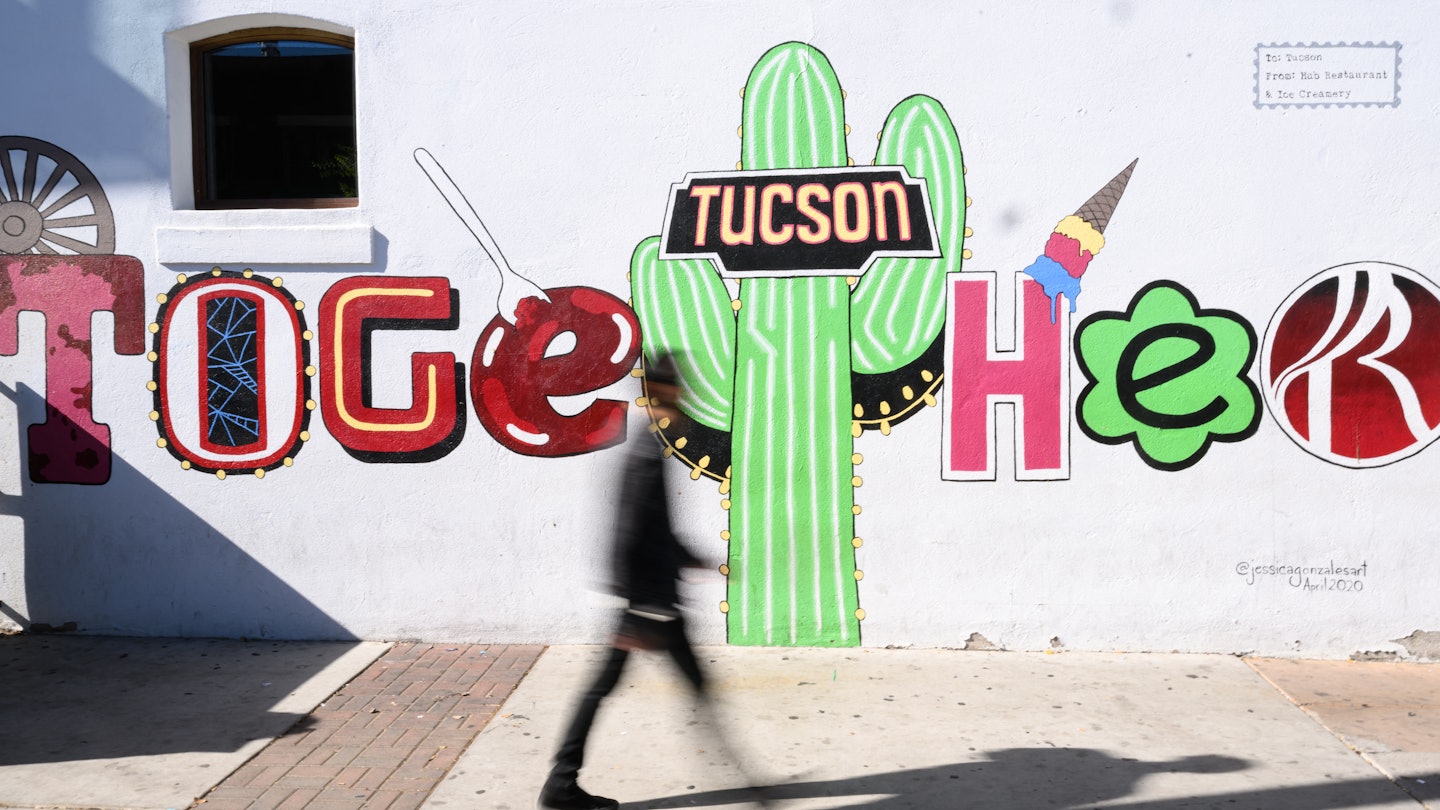
Beyond its spectacular desert landscapes, Arizona offers wineries, funky cities (like Tucson, pictured), art, architecture and more. Josh Edelson/AFP via Getty Images
Arizona’s desert landscapes, majestic sunsets and outdoor adventures draw visitors from all over the world. Yet the Grand Canyon State offers far more than just stunning nature.
Outdoor thrills are matched by indoor indulgences, encounters with history and hip modern neighborhoods. You can opt for a wilderness escape, or bustling ski resorts; big-city living, or empty spaces perfect for quiet contemplation.
Along with desert cities that exude a hint of the Old West, Arizona has atmospheric ghost towns and natural wonders aplenty, including (of course) the Grand Canyon – but also the world’s largest pine forest, which is also a ski area.
Read on for a roundup of the 10 places that best capture all Arizona has to offer.

1. The Grand Canyon
Best for taking in nature’s majesty
The Grand Canyon is rightly Arizona’s most famous sight. Colossal and spectacular, it draws huge crowds in summer – numbers that might dissuade first-timers or those seeking a quiet escape. Yet, no matter how many fellow visitors you encounter, this is a place that truly lives up to the hype.
While most know this massive canyon system carved by the Colorado River as a single entity, there are actually four separate areas you can visit. Grand Canyon National Park is divided into the South Rim (open year-round) and the North Rim (closed from mid-October to mid-May) – and these two zones are a full 210 miles apart. Along with mesmerizing views and hiking trails, the busier South Rim has a free shuttle service, a geology museum and some good on-site accommodations. Reaching 8000ft in elevation, the North Rim delivers more outsized panoramas and has milder weather and fewer people on the trails, contributing to a less touristy atmosphere.
The Grand Canyon’s West and East Rims are also worth exploring, though these areas fall outside the national park. The Grand Canyon West tourism area on the Hualapai Indian Reservation is famed for its glass-bottomed Skywalk, which stretches 70ft out over the canyon rim. The East Rim is quieter and ideal for peaceful hiking.
Planning tip: To see the best of the East Rim, check out the Little Colorado River Gorge in Navajo Tribal Park, about 11 miles from Cameron. While there’s a $5 fee to access two stunning overlooks, and you’ll need a $12 backcountry permit to hike the trails, solitude is all but guaranteed.
2. Monument Valley
Best for learning about Indigenous culture
To explore Arizona’s Indigenous culture amid 1000ft sandstone towers, make a beeline for Monument Valley Navajo Tribal Park. You’ll immediately recognize the landscape’s monoliths, which have been pictured in movies and TV Westerns since the 1930s.
The outcrops are called se’Bii’Ndzisgaii in the Navajo language, and the best way to fully appreciate this sacred land is to travel with a local guide who will add context to the experience as you walk in the shadow of buttes such as East Mitten and West Mitten.
Planning tip: Sunrise and sunset are the best times to photograph Monument Valley’s towering buttes. For sublime sunset photos, stake out a spot by the Monument Valley Navajo Tribal Park visitor center or the View Hotel.
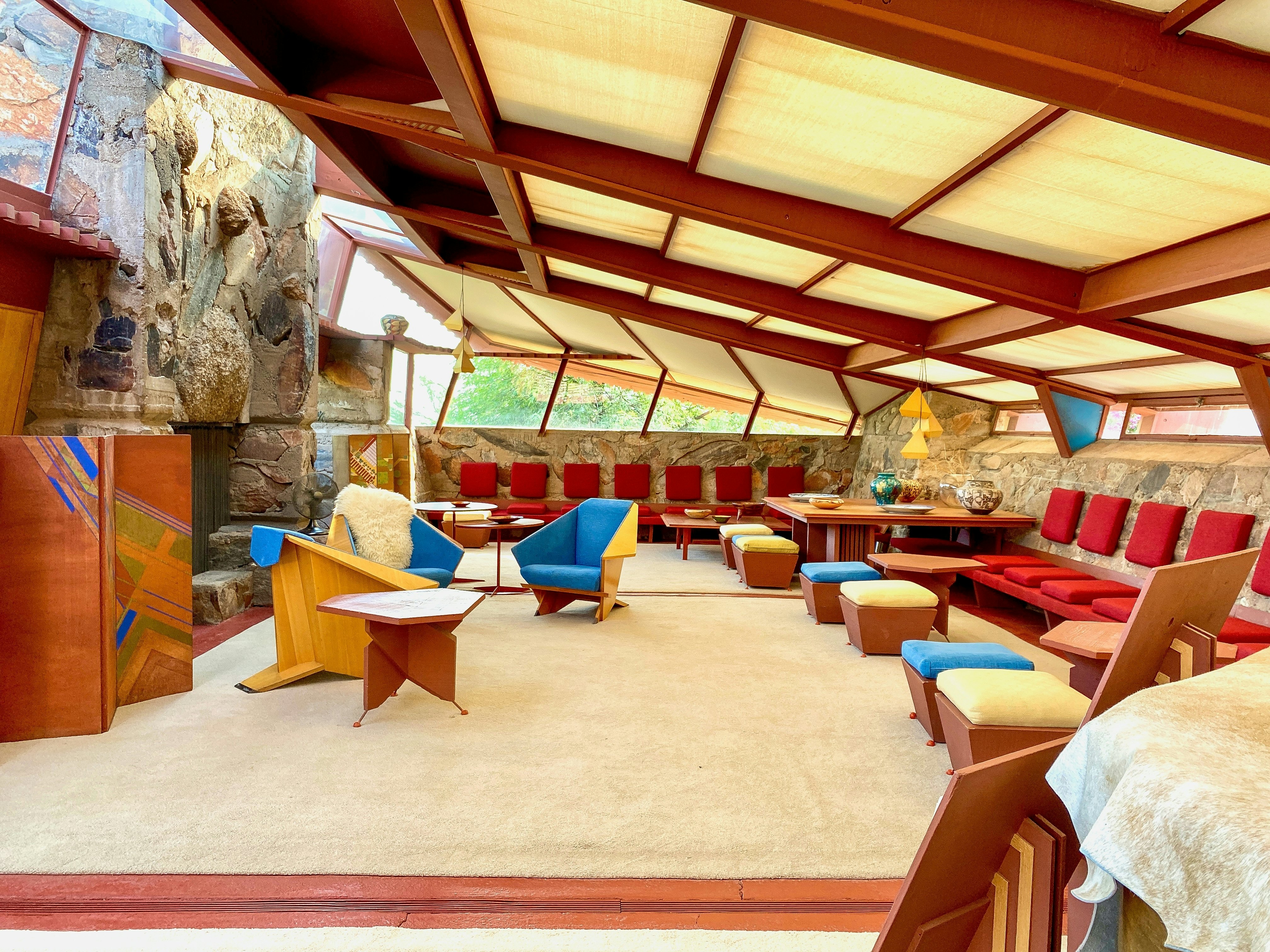
3. Phoenix
Best for art and architecture
Arizona’s capital of Phoenix is the best place to fuel your appetite for art and architecture in Arizona. The great architect Frank Lloyd Wright left his fingerprints all over the city – most notably at Taliesin West in suburban Scottsdale. Wright’s desert laboratory, the complex’s horizontal planes seem to merge with the rocky landscape – an architectural feat that has earned the site National Historic Landmark and UNESCO World Heritage designations. Continue to take in Wright’s legacy at Arizona Biltmore Resort & Spa: the building was designed by Albert Chase McArthur, with Wright acting as a consultant for four months in 1928.
The Phoenix Art Museum is another top venue, with exhibitions of work by both big-name and emerging artists. A particularly popular work is the Yayoi Kusama’s infinity mirror room entitled, You Who Are Getting Obliterated in the Dancing Swarm of Fireflies. From the art museum, it’s just three blocks to Roosevelt Row, where you can admire the murals that made Phoenix’s street art scene rightly famous.
4. Tucson
Best for historic sites and hipster vibes
Home to half a million people, Tucson is Arizona’s second-largest city, and it beautifully combines urban comforts with outdoor endeavors – plus an up-and-coming food scene. While it’s in the heart of the Sonoran Desert – adjacent Saguaro National Park boasts countless ancient, eight-ton cactuses – Tucson defies the desert-city stereotypes. A short drive from downtown along the Sky Island Scenic Byway, 9000ft Mt Lemmon is the highest point in the Santa Catalina Mountains, and the southernmost spot in the continental US where you can go skiing.
Downtown Tucson is a mix of historic sights and hipster vibes. The Turquoise Trail is a self-guided walking route linking 22 historic landmarks. Nearby, historic Fourth Ave bursts with youthful energy; its murals, tattoo shops and vintage boutiques attract students from the University of Arizona.
Planning tip: Tucson scores bonus points for sustainability thanks to the Sun Link Streetcar and The Loop, a 131-mile car-free pathway for cyclists, runners and walkers. Rent a bike from Tucson Bike Rentals on The Loop.
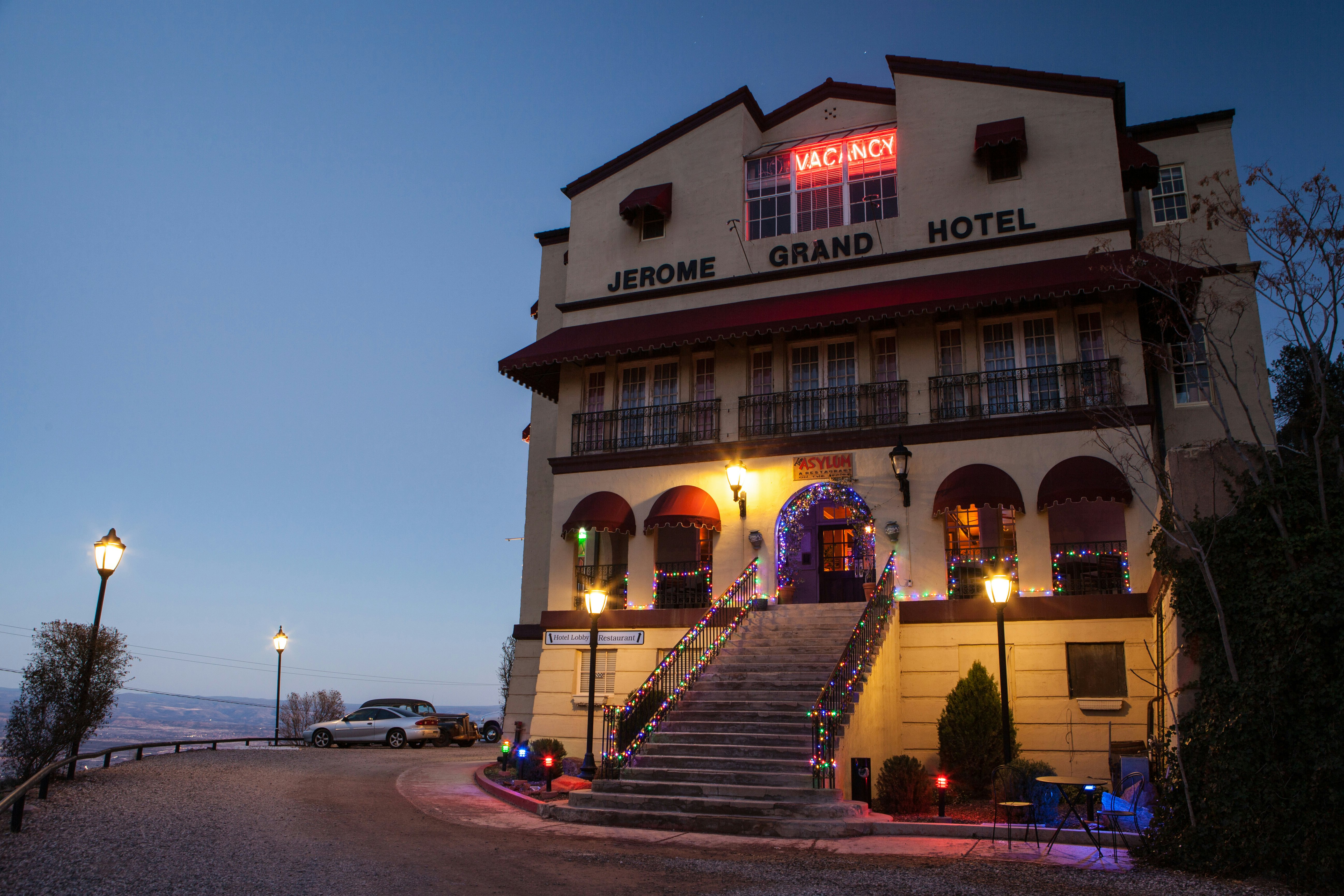
5. Verde Valley
Best for wine trails and historic towns
With its prehistoric ruins, outpost towns, abundant wildlife and wine trail that snakes around rivers and mountains, Central Arizona’s Verde Valley is an underrated spot. To get a sense of its rugged beauty, follow the 30-mile road that winds through the valley, starting in atmospheric Jerome, once hailed as the “wickedest town in the West.” Built by a mining magnate in the 19th century, this once-notorious outpost is today considered a ghost town (although it still has around 500 residents).
Jerome’s Cleopatra Hill once delivered payloads of gold, silver and copper for eager miners. The town today is a mix of eclectic restaurants, artists’ studios and offbeat boutiques, all set inside Victorian buildings that look poised to tumble into the valley below. In the fertile land below Jerome are the similarly historic towns of Clarkdale, Cornville and Cottonwood – home to Dead Horse Ranch State Park, a peaceful spot for outdoor recreation.
Planning tip: On a trip to the Verde Valley, you can also swing by Tuzigoot National Monument and Montezuma Castle National Monument, where you can see the remains of pueblos (villages) built by the Sinagua people in around 1050 CE.

6. Horseshoe Bend
Best for photo opportunities
What makes this 270° bend in the Colorado River stand out from all the other twists and turns along this mighty watercourse? Maybe it’s the way the dark blue waters of Horseshoe Bend reflect the towering sandstone walls that surround it. Its effect leaves you humbled at the thought of the massive forces of nature that shaped this region near Page, Arizona.
The overlook in Glen Canyon Recreation Area is the best place to snap a classic Horseshoe Bend photo. And a more enriching way to experience the canyon’s immensity is on a raft. Guided rafting tours head downriver to Horseshoe Bend and stop at a swimming beach with ancient Puebloan petroglyphs.
7. Grand Canyon Caverns
Best for a quirky Route 66 stop
Route 66 stretches across much of Arizona – and we recommend making a stop at the wild and sometimes weird Grand Canyon Caverns. Located in Peach Springs, this idiosyncratic site is composed of an inn, a four-table restaurant and the largest dry cavern in the US, situated 210ft down in the underbelly of the Grand Canyon.
Befitting this outpost’s oddball history, local woodcutter Walter Peck accidentally discovered the caves in 1927 after falling off his horse while heading to a poker game. Today, you can explore them yourself on a series of tours, including a ghost walk.
Planning tip: Arizona lays claim to 401 miles of Route 66, making this a great base for short road trips on this historic route. Essential stops include Holbrook (home to the Wigwam Motel), Winslow (immortalized by The Eagles in the song “Take it Easy”) and Williams, starting point for the Grand Canyon Railway.
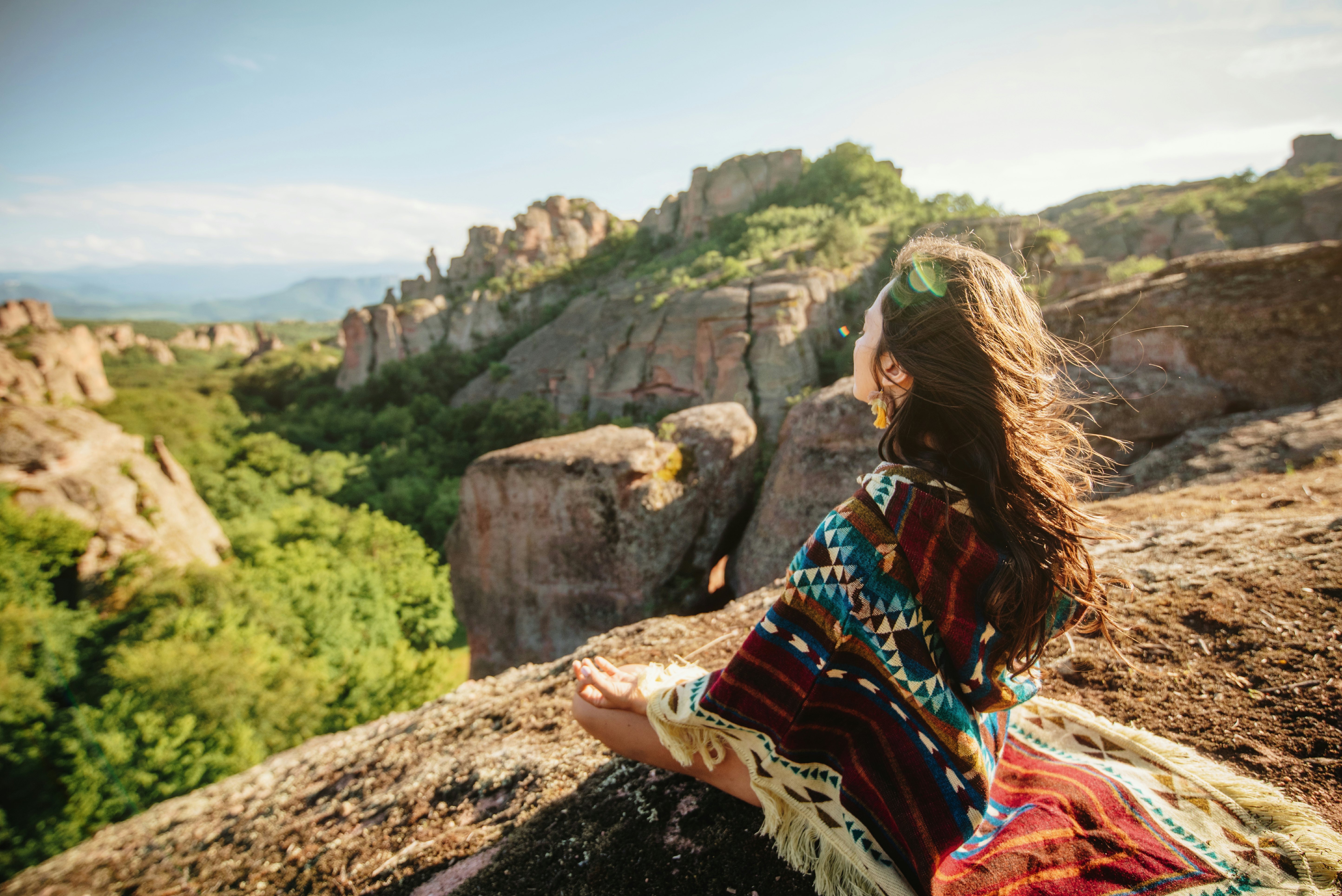
8. Sedona
Best for spirituality and wellness
Although technically a city, Sedona feels more like a glamorous village surrounded by natural splendor. Wherever you wander, you’ll be greeted by imposing red-rock formations and 5000ft monoliths such as Bell Rock and Cathedral Rock – said to be focal points for natural energy fields known as vortexes.
Modern-day Sedona has evolved from an outpost of ranches and apple orchards to a popular hub for spirituality, wellness and – reputedly – UFO sightings; this land is also sacred to a number of Indigenous groups. It’s also a great stop for art buffs and outdoor enthusiasts, with more than 80 galleries and 400 miles of trails zigzagging along Oak Creek through stands of prickly pear cactuses and ponderosa pines.
9. Meteor Crater
Best for ancient history
Among Arizona’s many superlative sites, Meteor Crater near Winslow is one for the ages. Almost a mile wide and 550ft deep, this massive depression is considered the best-preserved meteorite impact site in the world. The site has a fascinating backstory: it took shape some 50,000 years ago when a monstrous iron-nickel meteorite smashed into the ground at 26,000 mph, leaving a perfect impact crater. You can learn more about the site at the visitor center and 4D theater.

10. Flagstaff
Best for stargazing
Perched at an elevation of 7000ft, Flagstaff offers the best of the mountains, as well as urban pleasures. Situated in the world’s largest ponderosa pine forest, “Flag” is home to Northern Arizona University, which contributes to the city’s youthful vibe. The streets are awash with coffee houses and craft-beer establishments, which you can explore on the Flagstaff Brewery Trail.
To connect with the great outdoors, head to the Arizona Snowbowl, a four-season playground in Flagstaff’s backyard that has 40 ski runs and three terrain parks. Chairlifts go up to 11,500ft, offering dizzying views of Sedona’s red rocks, the rim of the Grand Canyon and fields of cinder cones as you ride up the western slope of 12,637ft Mount Humphreys.
Flagstaff is also a leading destination for astrotourism. In 1930, astronomers at Lowell Observatory here discovered Pluto, and all the American astronauts who walked on the moon received training in Flagstaff. Decades later, Flagstaff became the word’s first International Dark Sky city, and many visitors are drawn here specifically by the stargazing opportunities.
Planning tip: Flagstaff is a great base for exploring the wider state. Meteor Crater is just 42 miles away, and you can also easily access Grand Canyon National Park, Walnut Canyon National Monument, Sunset Volcano National Monument and Wupatki National Monument by car.














